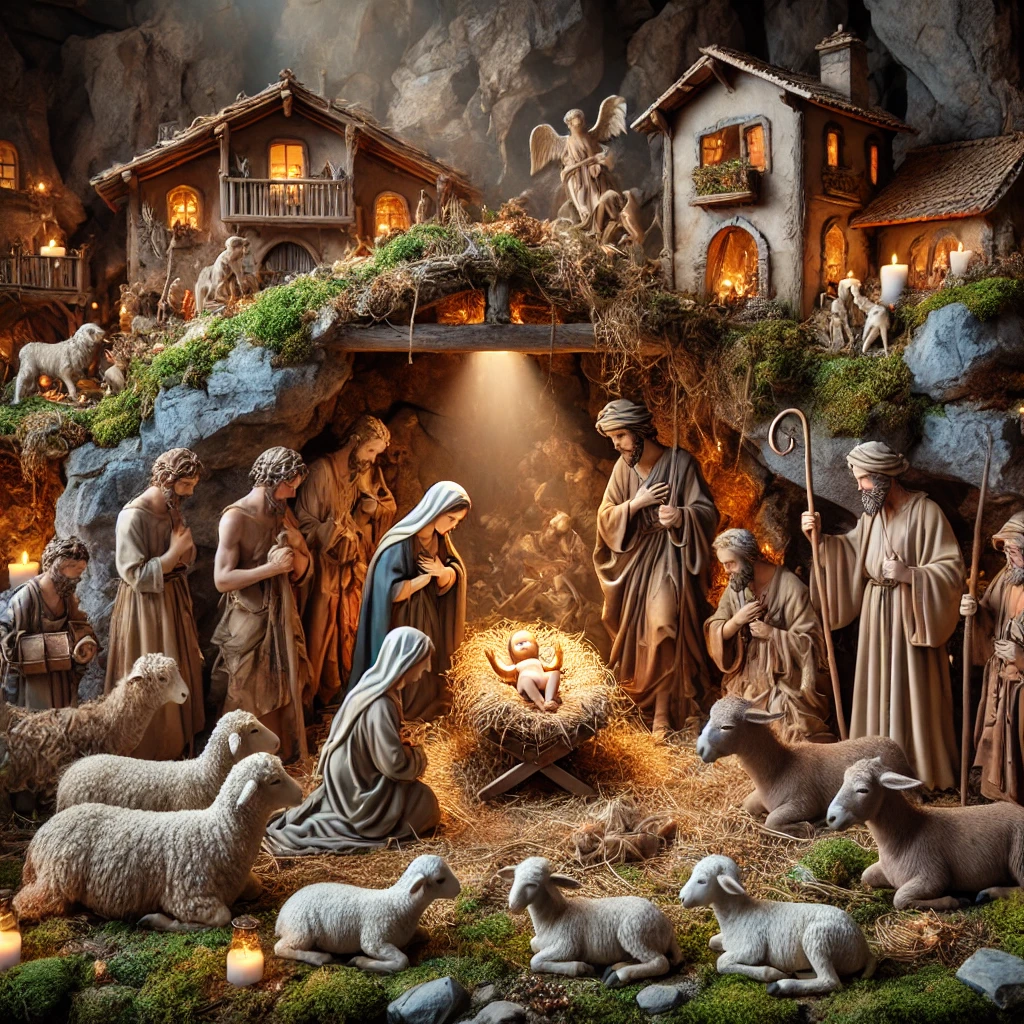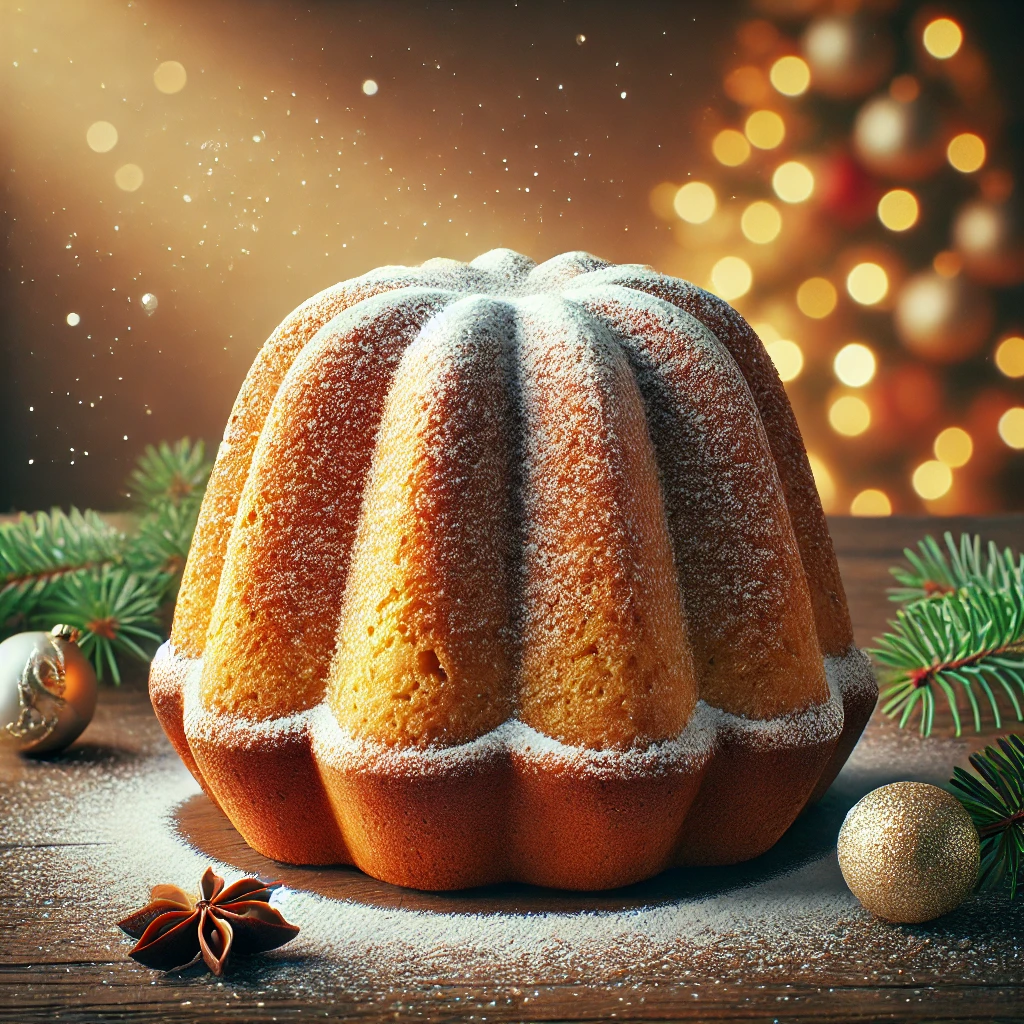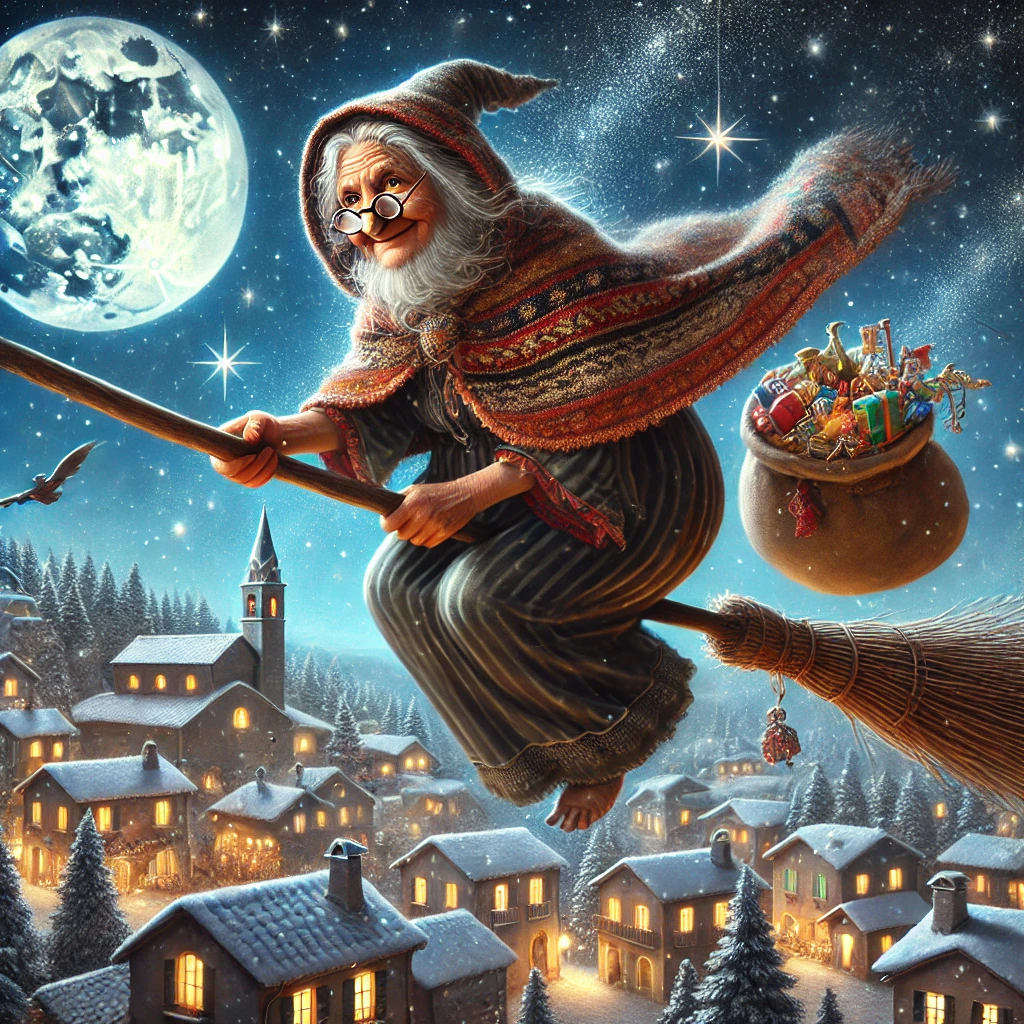Italy during Christmas, or Natale, is pure magic. The sparkling lights, festive markets, and old traditions make the holiday season unforgettable. Italians truly know how to celebrate with a perfect mix of family, faith, and—of course—delicious food. If you're learning Italian, this is the perfect chance to immerse yourself in the language while embracing the holiday cheer!
Let's explore some of the most special Italian Christmas traditions and learn some useful vocabulary and phrases along the way.
Christmas in Italy is all about la tradizione (tradition)— spending time with family, eating amazing food, and enjoying the festive spirit. Let’s dive into how Italians make this season so special.
Christmas Eve – La Vigilia di Natale
For Italians, Christmas Eve, or La Vigilia di Natale, is one of the most important days of the season. Families gather for a big dinner called la cena della Vigilia (Christmas Eve dinner). Many Italians eat seafood instead of meat on this night. This tradition comes from the Catholic custom of avoiding meat before Christmas.
The Christmas Eve dinner, often referred to as il cenone della Vigilia (the big Christmas Eve dinner), is a true celebration of Italian culinary traditions. It varies from region to region, but some classic dishes you might find include:
Il baccalà (Salted cod), a Christmas favorite across Italy
I calamari (Squid), often fried or stuffed
Le vongole (Clams)
Gli spaghetti alle vongole (Spaghetti with clams), a simple yet flavorful dish made with olive oil, garlic, and parsley
Il pesce spada (Swordfish), grilled or baked with a lemon and olive oil dressing
L’insalata di polpo (Octopus salad), a refreshing dish often served with olive oil, lemon, and parsley
After enjoying these dishes, many Italians head to church for la Messa di Mezzanotte (Midnight Mass) to celebrate la nascita di Gesù (the birth of Jesus). Churches are beautifully decorated, with stunning presepi (nativity scenes) on display, and the atmosphere is magical.
Useful Words and Phrases
Il Natale (Christmas)
La Vigilia di Natale (Christmas Eve)
La Messa di Mezzanotte (Midnight Mass)
La cena della Vigilia (Christmas Eve dinner)
Il cenone (Big dinner)
Buona Vigilia! (Happy Christmas Eve!)
Andiamo alla messa. (Let’s go to Mass.)
Hai visto il presepe nella chiesa? (Did you see the nativity scene in the church?)
Nativity Scenes – Il Presepe
One of the most famous Italian Christmas traditions is il presepe (the nativity scene). Italians love creating detailed displays of la nascita di Gesù (the birth of Jesus), complete with i pastori (the shepherds), gli animali (the animals), and of course, Gesù Bambino (Baby Jesus).
In Naples, you’ll find some of the most beautiful nativity scenes in the world. On Via San Gregorio Armeno, artisans create handmade figurines for i presepi. These figures can even include modern characters like politicians or celebrities, adding a fun twist to the tradition.
Useful Words and Phrases:
Il presepe (Nativity scene)
Gesù Bambino (Baby Jesus)
I pastori (Shepherds)
Gli animali (Animals)
Hai già fatto il presepe? (Have you already set up your nativity scene?)
Questo presepe è bellissimo! (This nativity scene is beautiful!)
Christmas Day – Il Giorno di Natale
Christmas Day, or Il Giorno di Natale, is all about family and food. Italians gather together to enjoy a big Christmas lunch called il pranzo di Natale. It’s a feast with several courses, and every region has its own special dishes.
Here’s what might be on the table:
I tortellini in brodo (Tortellini in broth)
L’arrosto (Roast meat)
La lasagna (Lasagna), especially with a rich, meaty ragù and layers of béchamel, is a favorite for many Italian families
Il pesce al forno (Baked fish)
Il panettone (Panettone), a sweet bread with raisins and candied fruit
Il pandoro (Pandoro), a star-shaped sweet bread dusted with powdered sugar
After lunch, families relax, exchange i regali (the gifts), and enjoy the rest of the day together. It’s a time to slow down, appreciate loved ones, and savor the festive atmosphere.
Useful Words and Phrases:
Il Giorno di Natale (Christmas Day)
Il pranzo di Natale (Christmas lunch)
I dolci di Natale (Christmas desserts)
I regali (Gifts)
Buon Natale! (Merry Christmas!)
Passami la lasagna, per favore! (Pass me the lasagna, please!)
Passa un Natale felice! (Have a happy Christmas!)
Ti piace il panettone o il pandoro? (Do you like panettone or pandoro?)
The Befana and Epiphany – La Befana e L’Epifania
The Christmas season in Italy doesn’t end on December 25th.It continues until January 6th, when Italians celebrate L’Epifania (Epiphany). This day marks the visit of the Three Wise Men to Baby Jesus.
A special character in this tradition is La Befana, a kind old witch. According to legend, she delivers sweets to children who were good and carbone (coal) to those who misbehaved. Kids leave out stockings, or calze, for her to fill. According to legend, la Befana flies on her broom, searching for Baby Jesus, and brings gifts along the way.
Useful Words and Phrases:
La Befana (Befana -Epiphany witch)
L’Epifania (Epiphany)
I dolci (Sweets)
Il carbone (Coal)
Le calze (Stockings)
La Befana vien di notte. (The Befana comes at night.)
Cosa ha portato la Befana? (What did the Befana bring?)
Easy Italian Christmas Vocabulary
Here’s a handy list of Christmas-related Italian words to use during the holidays.
L’albero di Natale (Christmas tree)
Babbo Natale (Santa Claus)
Le luci di Natale (Christmas lights)
La neve (Snow)
I fiocchi di neve (Snowflakes)
La stella (Star)
Auguri! (Best wishes!)
Festeggiare (To celebrate)
I regali (Gifts)
Italian Christmas traditions are all about joy, family, and community. From decorating l’albero di Natale to attending la Messa di Mezzanotte, Italians truly know how to make the season special. And now, you have some vocabulary and phrases to help you feel like a part of it!
If you’re looking to truly embrace Italian culture during the holidays, try using some of them.
So, whether you’re enjoying il panettone, admiring il presepe, or waiting for la Befana, remember to say: Buon Natale!
As you learn more about Italian customs and language, you'll find that Natale is not just a holiday, but an experience filled with warmth and joy.
Wishing you a Christmas filled with love and laughter—just like they celebrate in Italy!
Buon Natale e Felice Anno Nuovo! 🎄








